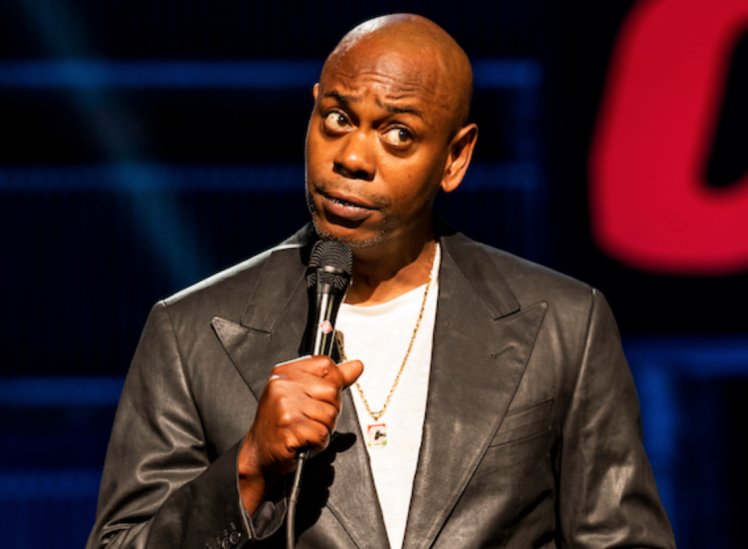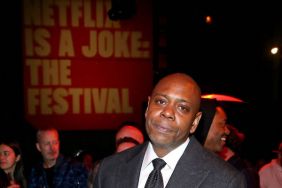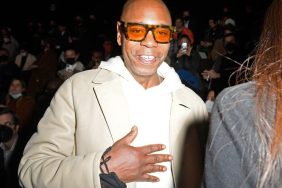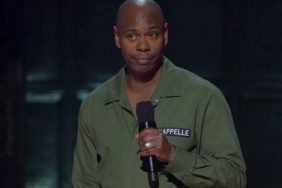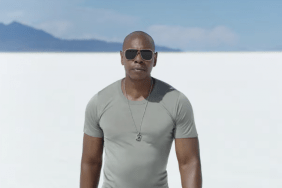When it comes to standup comedy these days, nobody pokes the hornet’s nest quite like Dave Chappelle. He’s the type of comedian who feels most at ease while making every person in the room uncomfortable, a puckish highwire act of pushing things to the breaking point before somehow releasing (most of) the tension with a laugh. It’s a tough edge to walk, one that relies on the audience checking their baggage at the door and withholding judgment until the final bell. His latest Netflix special, The Closer, in many ways is that final bell.
There’s no doubt over the course of his 30-year career that this no-holds-barred style has gotten Chappelle into more hot water than a Korean bathhouse. Yet nothing in the comic provocateur’s career has stirred up nearly as much mayhem as his six Netflix specials. With each new hour, his already razor-thin margins have gotten microscopic.
Now, with so much controversy surrounding his Netflix farewell, including calls to ban the special and employees being suspended for crashing executive meetings in protest, unpacking this hour-long show feels a little like unpacking a ticking time bomb from a flaming suitcase. So naturally, it’s the perfect time to take a stroll down memory lane while haphazardly removing the contents of The Closer. Shoot. Did anybody bring gloves?
Cover Photo: Netflix
Visit the Mandatory Shop for great deals on your very own Mandatory merch.
Follow Mandatory on Facebook, Twitter, and Instagram.
Chappelle Closer
-
Distinguished Pubes
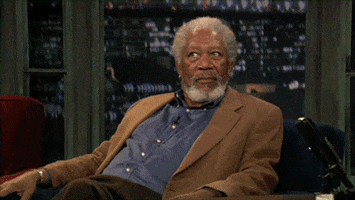
When Chappelle finally returned to the public eye after a ten-year hiatus, he'd put on a lot of mileage. He chose to share his struggle with getting older by walking us through a failed self-pleasure session as narrated by a distinguished Morgan Freeman. The ridiculous personification of his flailing phallus was so over the top, yet so totally ubiquitous, there wasn't a dry eye in the building.
Likewise, in his latest special Chappelle hilariously combines two things that should never go together. We don't want to ruin it for you, but it may involve Martin Luther King Jr. and glory holes.
-
Baby On The Corner
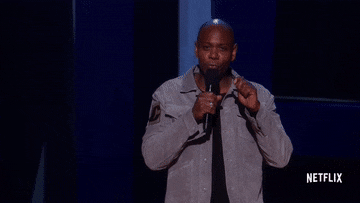
To this day, 2000's Killing Them Softly still holds up as one of Chappelle's best. And the bit about being taken to a rough neighborhood late at night only to find himself being scared of a baby standing on the corner is a rib ripper. Spoiler alert: The baby ends up being a drug dealer working late to support his kids, a reminder that Dave is an absurdist at heart.
Absurdity is often the only thing that balances Chappelle's devilish yearnings to alienate his audience. The man thrives on winning them back after a joke goes too far. In those agonizing moments when a joke hurts, we remember the absurdity underneath it all. Dave isn't a preacher with a pulpit, he's a silver-tongued rascal at a comedy show. It reminds us that tuning into a boxing match and expecting someone not to get punched is a setup for failure.
-
To Pimp A Comedian
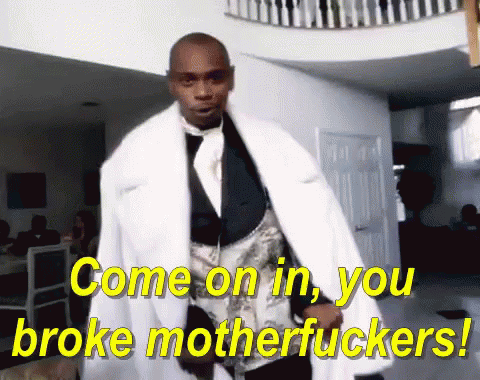
In his most startlingly intimate Netflix special Bird Revelation, Chappelle recounts the biography of a pimp, Iceberg Slim. The laughs he sprinkles in are mostly throwaways, but his storytelling here is pure undertow. It pulls you right in and keeps you rapt until the final moment, one he uses to compare capitalism to the cruelty of pimping as the reason he left Chappelle's Show at the height of its success.
The Closer strikes a similar tone for its final anecdote - a story about a trans comedian who Chappelle invited to open his shows in San Francisco. Spacing out the laughs, Chappelle focuses on the connection these two comedians made on a basic human level. It's a rare show of emotion for the arms-length comic and a last-ditch attempt to lay bare his humanist ethos. For many folks, it failed spectacularly. But just like the unmanned bucket of candy at the top of the stairs said to the hungry trick-or-treater, take from it what you will.
-
Black Hostages
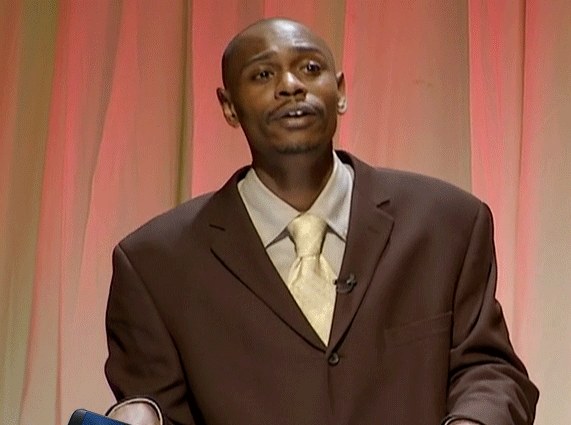
This is a purely fictional story about being on a flight when a wild gunman takes the entire plane hostage. While everyone else is freaking out, Dave and another black passenger keep their cool, knowing that their lives aren't in danger. Because even terrorists know, in America, black hostages aren't worth a damn.
For a guy who's built his career off of dissecting race in America, there's no exclusion of dunking on black people. (See his bit about black Santa.) Because for Chappelle, who at this point is now an old-school jester, dunking on people is a huge part of standup. According to him, meanness often crosses paths with funny. (Why else do roasts exist?) His egalitarian dunking impishly seeks to sling injustice on all in the hopes that we'll leave feeling life has been equalized in some small way. It's gallows humor for a desperate lot trudging slowly toward extinction.
-
The Police
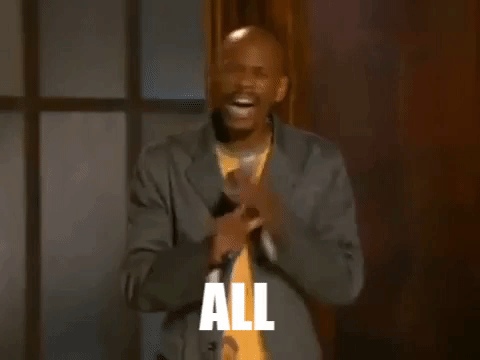
All in all, Chappelle has had no shortage of things to say about the police. While his somber short 8:46 addressed many of his thoughts on systemic racism in policing in a poignant, heartfelt way, it was an early career observation about driving stoned with his white buddy that illustrated his point so well. Explaining the difference between driving while white versus driving while black, Dave told a story about his white friend who got pulled over whilst smoking a joint. As Chappelle sat in the passenger seat scared for his life, his friend rolled down the window to ask for directions.
Contrary to that encounter with the cops, The Closer sees Chappelle acting as the aggressor. Going for the jugular in daredevil fashion. Maybe he's too old to be scared. Maybe he wanted to leave it all on the mat. Maybe it's the reported $120 million he made on his Netflix deal. Whatever the reason, we wouldn't mind seeing Chappelle add a dash of humility back into his next hour.
-
Stovetop Stuffing
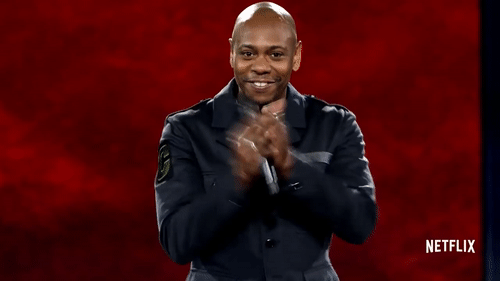
In a rare glimpse into Chappelle's childhood, the comic tells a story of growing up in a white suburb of D.C. because his parents were not poor enough to attain that inner-city life. He admits to idolizing black ghettos and putting on airs in front of his black friends like Nas who actually grew up in the projects. The story culminates in his wanting to stay for dinner at a white Mormon friend's house so he could taste Stovetop Stuffing for the first time. And yes, the joke is stuffed with laughs in every bite. For a comic who spends so much time making fun of others, it's a nice change of pace to see him point the slingshot on himself.
Unfortunately, Chappelle doesn't bring the jokes close to home in The Closer. At times he talks about life in Ohio and getting Covid while in Texas, but the plot and punchline are always pointed somewhere else.
-
Dusty White People
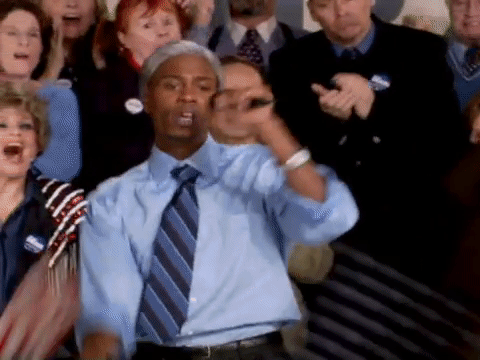
Chappelle had some things to say about the voting process after Trump got elected POTUS. In 2017's Equanimity, Chappelle hilariously compared the different crowds each era's candidates brought out. But instead of landing the joke on race, he made a point about classism. "I stood in line with them like all Americans are required to do in a democracy, nobody skips the line to vote… and I listened to them... say naive poor white people things: ‘Donald Trump is going to go to Warshington and he’s gonna fight for us.’ I’m standing there thinking, ‘you dumb motherf*%ker … you are poor. He’s fighting for me!"
It's true, he continues deconstructing expectations vs. reality in The Closer, though not to as great effect. Using DaBaby as a bizarre motif, he reminds the audience that the rapper once shot and killed a black man inside a Walmart and suffered less blowback than when he "hurt a gay person's feelings." Somehow, Chappelle works this motif until it gets slightly funnier, but we're not sure DaBaby's hate slurs are the best blanket to wrap any argument in. In the end, it was but one of a few big swings Chappelle whiffed on.
-
Black Klansman
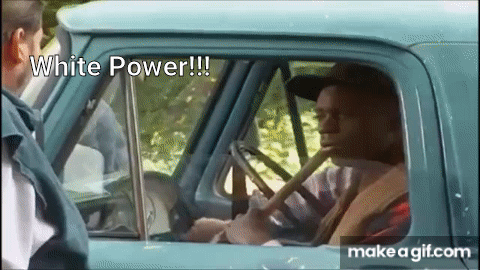
We know, this isn't standup, but it's the joke that made Dave mega famous. It came at the end of the pilot episode for Chappelle's Show and resonated so universally the show became an instant hit. So what made it so good? For one thing, the premise of a black man becoming the KKK's most outspoken member due to his blindness is peak Chappelle. If the sketch were nothing more than a sight gag, it would still crush. But the joke also manages to tackle racism, social constructs, and the lack of self-awareness we all possess on some level. It's a joke that connects just about every dot inside Chappelle's cannon.
Ultimately, the truth Chappelle has sparred with for years is that we all have hidden biases we're dealing with, and hopefully, ironing out. But unlike us, Chappelle has ironed his out publicly, and at times it's been ugly. Yes, he dedicated too much energy to the trolls and critics, trying to convey how canceling people who trigger your experience of oppression is really just another form of oppression. But in the end, it looks like Chappelle may have finally ironed out a few longstanding kinks of his own. If this proves to be true, maybe instead of getting mad at a career shit-talker, we can pick up the steamer and start smoothing while the iron's hot.
